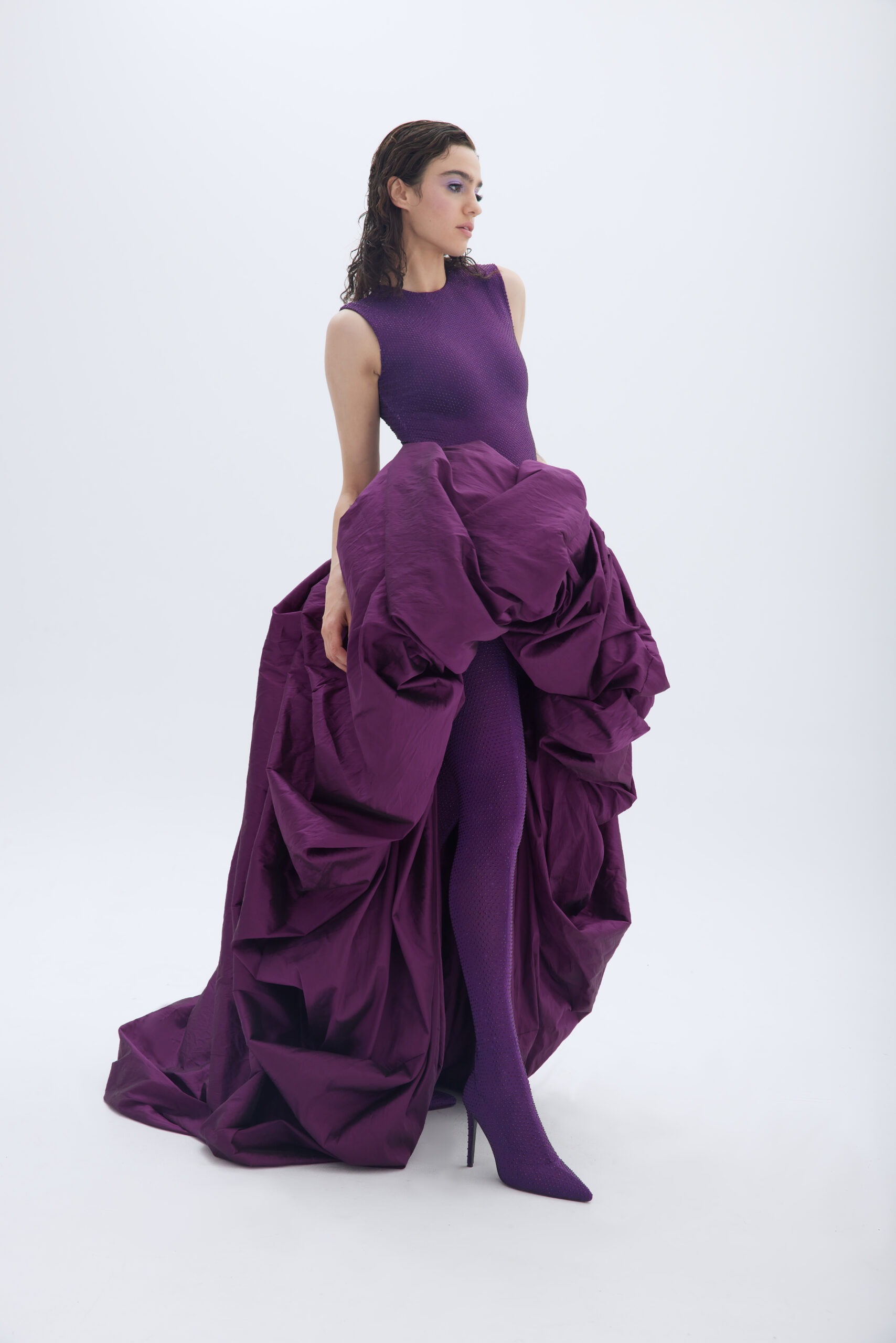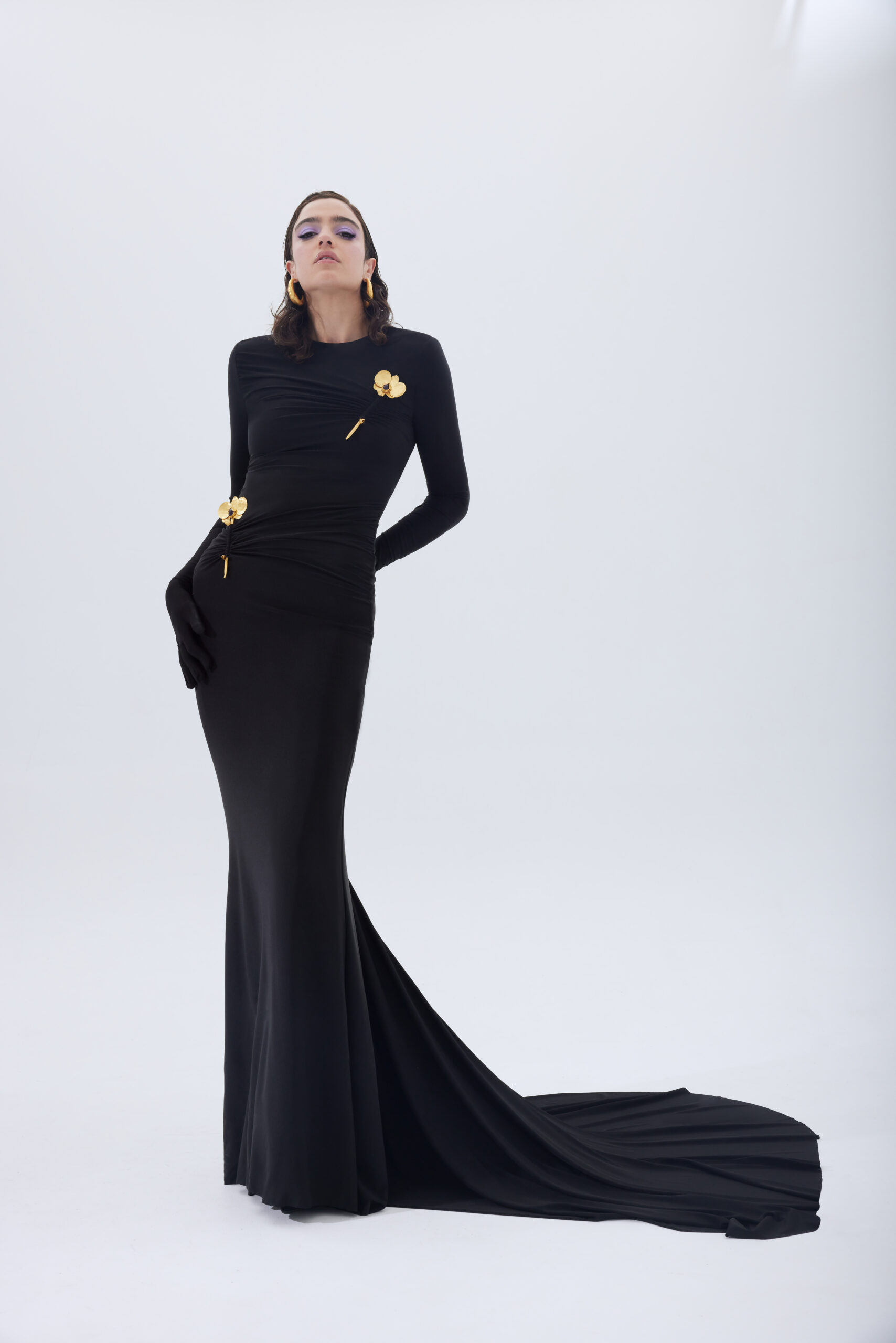
In conversation with Saudi designer Yousef Akbar
- Yaseen Dockrat
Fresh off presenting his latest collection at the third annual Riyadh Fashion Week, Jeddah-born and raised designer Youssef Akbar is relaxed and eager to pursue exciting plans. Since launching his brand in 2017, the designer who dares to challenge conventions has risen to stardom, dressing A-list celebrities Sharon Stone, Chrissy Teigen, and Kelly Rowland.

Photo: Courtesy of Yousef Akbar
During his childhood in Jeddah, Akbar never dreamed of being a fashion designer; it is not about the title of fashion designer that makes him do what he does best. His journey into fashion design is linked to his insatiable need to be involved in a creative process that fuels self-expression. “I never wanted to be a fashion designer, and I still don’t care much about being a fashion designer,” he tells me. “It is more about the need to be creative and the need for self-expression from an early age. At the moment, it happens to take the form of fashion design.” While Akbar does not care much about the title, his creative process and self-expression currently take shape through design. It might strike those reading this interview as slightly strange. Fashion enthusiasts are used to designers and commentators elaborating on their love for fashion and childhood dreams of dressing their most loved icons.
Naturally, as a creative, the creative process is essential to the outcomes that the world gets to marvel at. Many designers and artists attest to some routine when creating a new collection or artwork. For Akbar, the process is slightly different. “This is very difficult to explain, to be honest. My creative process is not a secret but very personal and usually autobiographical. It could take many forms, and it usually starts from a strong feeling or reaction to something or an event in my life. I start by examining and researching these feelings, and it usually develops into a story connected to many random references and topics,” he says. “Looking at art, history, movies and anything in the world. Then I usually translate these references into sketches, cuts, and drapes on the mannequin, and from there, it progresses to become final looks and a full collection.”

Photo: Courtesy of Yousef Akbar
With Saudi Arabia opening itself to the world and launching major cultural events, including Riyadh Fashion Week, the industry is evolving rapidly. For Akbar and many other designers from the Kingdom, that is something they look forward to. “The main challenge, to be honest, is not having a complete fashion infrastructure and a complete fashion industry; there are still many missing parts, or maybe parts that are not fully developed yet.” “However, as I mentioned before, I feel the way the Ministry of Culture and Fashion Commission is planning and developing our Saudi industry is unprecedented and almost miraculous. So, it will not be long until we have all the components needed for a strong fashion industry that rivals any fashion capital worldwide.”
At Riyadh Fashion Week’s third annual event, Akbar presented a collection that delves into the power of women, particularly those who inspired him throughout his life. Starting with his mother, where every child’s journey begins, Youssef pays tribute to his mother and the concept of motherhood by incorporating an Orchid motif as a reference throughout his collection. The story behind the Orchid is that it serves as a symbol and reference for fertility and sexuality. Using this inspiration, Akbar presented his collection in Riyadh; the entire experience is a memory he thoroughly relishes. “The experience was great. There is a lot of work still to be done, but for the first-ever fashion week in Riyadh, it is an incredible start. It is something I never imagined would happen, and it is great to see all the support from the Saudi Ministry of Culture and Fashion Commission.”

Photo: Courtesy of Yousef Akbar
While he does look for influences around him, cultural influences from the Kingdom are not something that Akbar pays close attention to. Instead, Akbar pays close attention to emotions, stories, and self-expression. “I do not incorporate any cultural influences at all. And I do not like to box my work or categorise it into any category. Not Saudi or anything else, even though I am proud to be Saudi, but my culture does not define me. As humans, we are overly complex beings, and I would like to think that my work is deeper and more diverse than that. My work is not defined by any culture. My work is more about story, emotion, and self-expression.”
